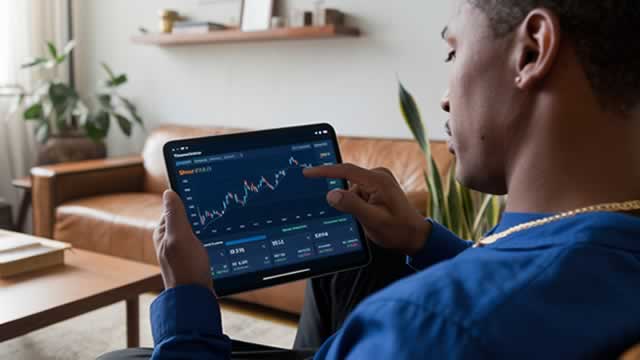Robinhood’s Stock Surge Raises Questions Ahead of Earnings Report
Introduction
Robinhood Markets, Inc.’s stock has surged 124% since last July, outperforming Interactive Brokers, prompting a reassessment of its fundamentals ahead of its Q4 earnings report. Despite high momentum, Robinhood faces significant risks from potential declines in retail investor activity, particularly as earnings estimates require continued abnormal stock market speculation. Interest rate risks are diminishing, but Robinhood’s heavy reliance on short-term trading activity and margin debt poses volatility and downside risks, given most non-retiree accounts appear overextended into equities.
Analysis of Stock Performance
Robinhood has seen a remarkable surge in its stock price in recent months, outpacing many of its competitors in the financial services industry. This rapid growth has led many investors to question whether the company’s fundamentals justify such a significant increase in valuation. With its Q4 earnings report looming, analysts are closely monitoring Robinhood’s performance to see if it can sustain its momentum.
Risks and Challenges
Despite its impressive stock performance, Robinhood faces several challenges that could impact its future growth. One of the biggest risks is the potential decline in retail investor activity, which has been a key driver of Robinhood’s success. If retail investors pull back from the market, it could have a significant impact on Robinhood’s revenue and profitability.
In addition, Robinhood’s heavy reliance on short-term trading activity and margin debt exposes the company to volatility and downside risks. Many non-retiree accounts on the platform are heavily invested in equities, which could be problematic if there is a market downturn. This overextension into equities leaves Robinhood vulnerable to sharp declines in stock prices.
Impact on Individuals
Individual investors who have holdings in Robinhood may see fluctuations in their portfolios as the company’s stock price continues to be volatile. It is important for investors to carefully assess their risk tolerance and consider diversifying their investments to mitigate potential losses.
Global Implications
The surge in Robinhood’s stock price reflects broader trends in the financial markets, where retail investors have played an increasingly active role. Any significant changes in Robinhood’s performance could have ripple effects on other companies in the industry and the overall market. It is crucial for investors around the world to monitor developments at Robinhood and adjust their investment strategies accordingly.
Conclusion
As Robinhood prepares to release its Q4 earnings report, the spotlight is on the company’s ability to sustain its impressive stock performance. While the recent surge in its stock price has been remarkable, Robinhood faces significant risks and challenges that could impact its future growth. Investors should proceed with caution and carefully evaluate their investment decisions in light of these factors.





